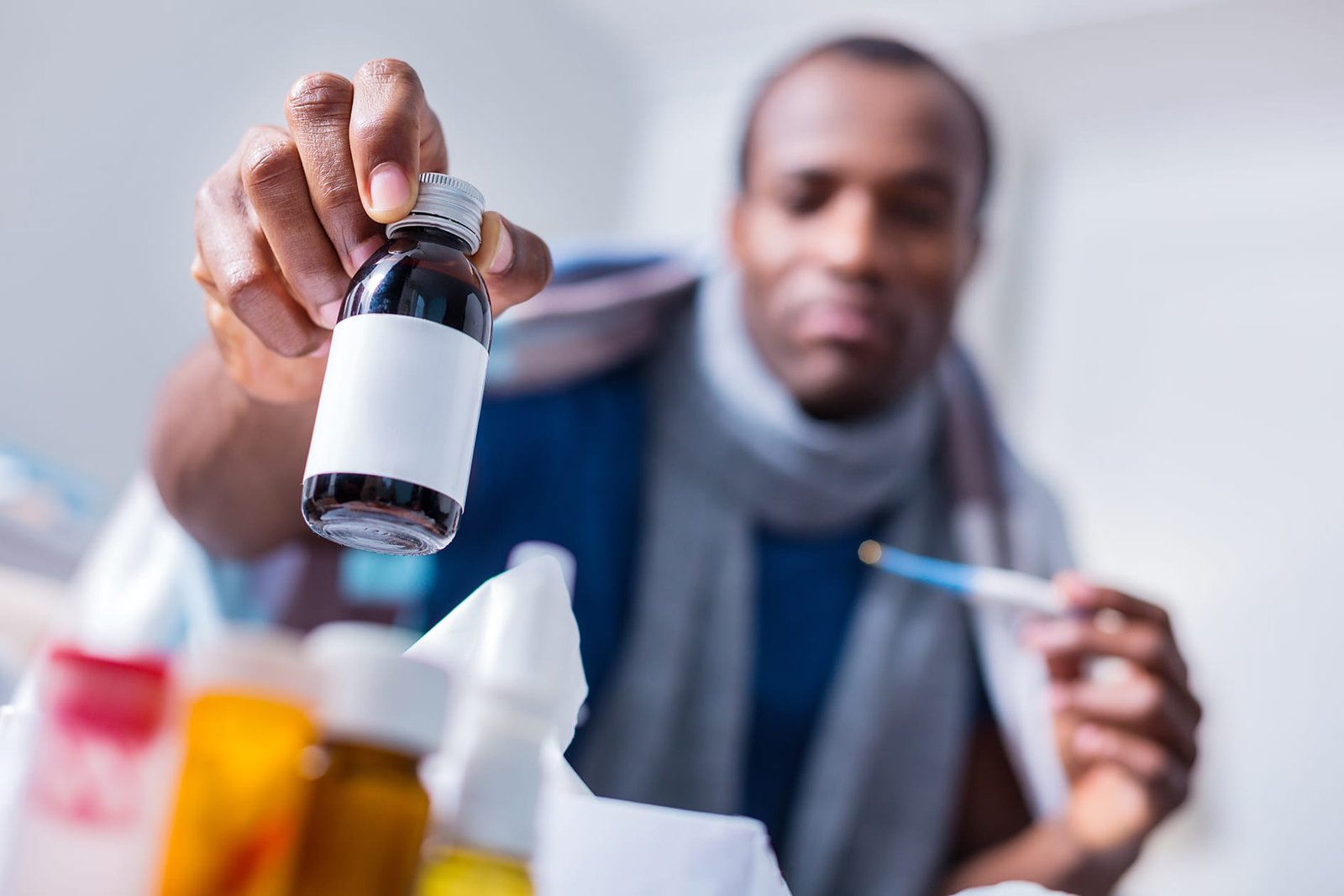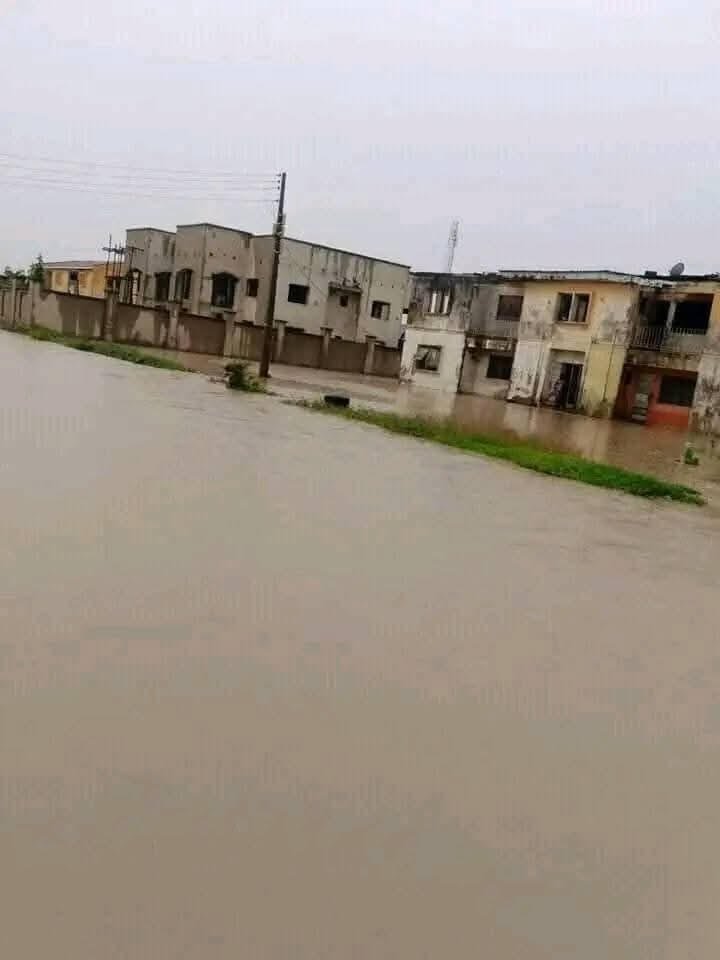Medical misinformation and deception are prevalent in Nigeria, saturating social media with misleading information on treating various illnesses, including serious conditions like cancer and kidney failure. This report by Jumoke Olasunkanmi probed claims by one online vendor claiming to have an alternative treatment for kidney failure on Facebook.
‘’Magical healing power’’
Nicole Dietary Consultancy Ltd. (NDCL) describes itself as an online health consultancy company which claims to be able to reverse kidney failure without dialysis. This ‘company’ which did not provide any qualification credentials runs sponsored ads on Facebook asking dialysis patients, among others – as they claim to cure a host of diseases like cancer, sickle cell anaemia, and many others – to shun orthodox healthcare and return to ‘God’s plan of natural healing’.
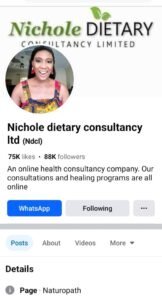
It even launched a ‘stop dialysis’ challenge where they called on kidney failure patients to discontinue dialysis and embrace treatment plan consisting of herbal baths, concoctions and diet.
In a Facebook post, this ‘company’ falsely alleged that kidney failure is not caused by high blood pressure but as a result of the patient’s sinful lifestyle and ‘perversion’.
“Your kidneys failed because you practiced perversion (wrong lifestyles). These antinatural ways started introducing all manners of toxins into your body. The strength of your kidneys failed overtime, that’s why you are where you are where you are now…
No hbp caused your predicament but you,” it wrote.
To further understand how this company operates, African Health Report (AHR) attempted to reach it via phone numbers provided in the post on Facebook but all of the listed ones were unavailable. However, our reporter was able to establish contact with one of the company’s consultants who identified himself as Joshua. Posing as someone whose uncle had a kidney failure, our reporter sought to know what would be required for NDCL to ‘treat’ him.
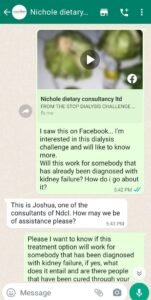
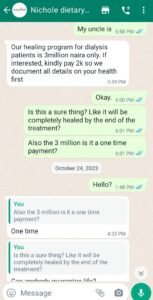
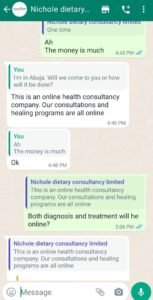
Joshua started by asking that the sum of two thousand naira should be paid for documentation before the company can listen to the case of the patient. He also informed her that the company charges N3 million one-time payment for their ‘healing programme for dialysis patient’. Also, he wanted it known that the consultation and healing programme are done online.
“Our healing programme for dialysis patients is 3million naira only. If interested, kindly pay 2k so we document all details on your health first,” he said, adding, “This is an online health consultancy company. Our consultations and healing programmes are all online”.
When asked if the treatment plan is guaranteed to reverse kidney failure, he gave a vague response, saying that God is the only one that can determine the end.
“Can anybody guarantee life? We just do what we do for others, he does his part and God determines the end. If others are healing, hopefully he should,” he said in the chat.
Two weeks after this conversation, NDCL’s Whatsapp Channel was deactivated. The ‘company’ also said its Facebook page was also flagged for deactivation and alleged that this was done by ‘big-pharma’ who didn’t want it to preach the truth to the people. It then urged people to pay a N10,000 fee to join its telegram channel.
“This NDCL’s official page has been flagged (marked) for deletion by Facebook and might be off, anytime.
‘’It’s obvious many are against our work… My teachings which many regard as controversial (is contrary to the usual western theories on health).
Anyway, I have instructed a telegram page be created… You pay ten thousand naira to be thereon the general platform, if you need our healing programs, you still pay for our services,” it wrote.
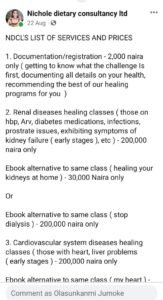
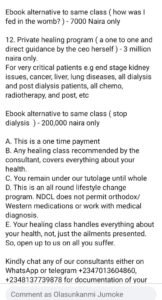
AHR did not join the Telegram page, but this company continues to operate and lure ignorant Nigerians to put their health at risk for a promise of magical kidney repair. This raises questions about regulatory supervision and the position of the Nigerian Medical Association on issues like this.
AHR reached out to the National Agency for Food and Drug Administration and Control (NAFDAC) on this matter but no response was given.

AHR also contacted the NMA and spoke with an official who stated off the record that the Association does not recognise or approve of any alternative treatment plan for kidney failure or other chronic diseases.
“NMA has not and does not approve of any alternative treatment plan for terminal diseases like ESKD (End Stage Kidney Disease).”
It further said the association does not interfere in ‘’social media shenanigans.’’
“This matter is a social media thing and NMA does not get involved in social media.”
It can, therefore, be concluded that people seeking health solutions from the likes of NDCL are doing so at their own risk and the company, on the other hand, can continue with their activities without any hinderance. This is one of the reasons why quackery and medical fraud thrives in Nigeria.
Why medical quackery thrives in Nigeria
According to a report by the World Health Organisation (WHO) on countries at high risk of medical quackery, Nigeria is one of the most vulnerable on a list that includes India, Pakistan, Kenya, Ghana, and Tanzania.
Poverty, which limits the ability of financially handicapped Nigerians to seek proper care in accredited healthcare facilities, is a major factor pushing Nigerians to an early grave through the hands of medical quacks.
When the patients are able to gather the resources, they are sometimes faced with the challenge of having to travel long distances to dialysis centres because they are not available in the locations they reside.
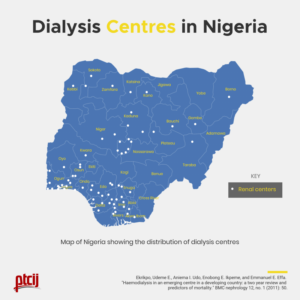
For this article, focus is on kidney disease which can progress to Chronic Kidney Disease (CKD), where the kidneys can’t filter waste from the blood, requiring dialysis or a transplant. In Nigeria, approximately 80% of kidney disease cases occur in low and middle-income countries. The President of the Nigerian Association of Nephrology, Ifeoma Ulasi, revealed in 2020 that 25 million Nigerians have kidney disease.
However, a 2022 National Library of Medicine publication disclosed that only 2% of End Stage Kidney Disease (ESKD) patients in Nigeria receive hemodialysis due to out-of-pocket healthcare payments. Dialysis costs between N20,000 to N30,000 per session, making it financially burdensome for the average Nigerian, especially considering the minimum wage is N30,000.
In response to this financial strain, some Nigerians explore alternative treatments, leaving them susceptible to misinformation and quacks who make false assertions.
NDCL propagated questionable claims through sponsored Facebook ads, urging patients to abandon conventional healthcare for herbal treatments. They falsely attributed kidney failure to a patient’s “sinful lifestyle” rather than medical factors.
Apart from poverty, cultural beliefs promote the use of traditional or alternative medicine, which can sometimes be harmful, especially in cases where the medical problem is at an advanced stage.
Need for government to strengthen fight against substandard and falsified medical products
More action must be put into fighting medical misinformation and deception in Nigeria, especially through social media. With the availability of various online tools to explore, substandard and falsified medical products have gained access to a wider audience who are mostly desperate and therefore, vulnerable. Many unregulated websites are providing unsupervised access to substandard and falsified medical products, and with Nigeria’s weak health systems, there are willing consumers waiting to consume them.
WHO notes that substandard and falsified medical products are most likely to reach patients in situations where there is constrained access to quality and safe medical products, poor governance and weak technical capacity, adding that an estimated 1 in 10 medical products in low- and middle-income countries is substandard or falsified.

